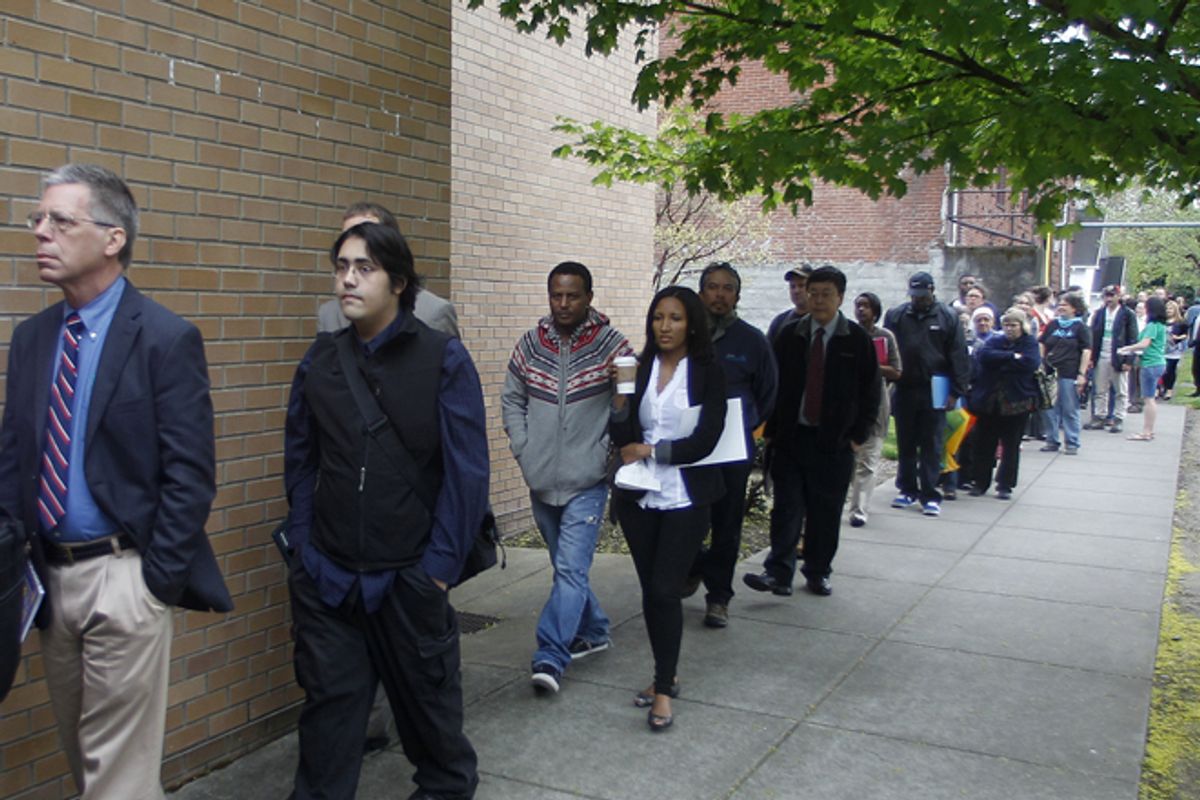We remain in the gravitational pull of the Great Recession. The Labor Department reports that 165,000 new jobs were created in April – below the average gains of 183,000 in the previous three months.
We can’t achieve escape velocity. Since mid-2010, the three-month rolling average of job gains hasn’t dipped below 100,000 but has exceeded 250,000 jobs just twice.
This isn’t enough to ease the backlog of at least 3 million (estimates range up to 8 million) job losses since 2007, just before the Great Recession began. (And as I’ll point out in a moment, 2007 wasn’t exactly jobs nirvana.)
Moreover, most of the new jobs now being created pay less than the ones that were lost.
What’s wrong?
First, government is doing exactly the opposite of what it should be doing. It raised payroll taxes in January (ending the temporary tax holiday), thereby reducing the incomes of the typical family by about $1,000 this year.
More damaging, government cut spending through the damnable sequester – thereby reducing overall demand for goods and services. (Direct government employment dropped another 11,000 in April.)
There’s also a deepening structural problem. All the economic gains from the recovery have gone to the very top, leaving the middle class (and everyone aspiring to join it) with a shrinking portion of the pie.
Consumers are still spending, but tentatively at best. And much of the spending is coming from the rich, whose stock portfolios have grown nicely. (The wealthiest 10 percent of Americans own 90 percent of all shares of stock.)
But the rich don’t spend as much of their earnings as everyone else. They save and speculate around the world wherever they can get the highest return.
The structural problem of widening inequality also hurt the last recovery, which ended in 2007.
Compared to the one we’re now enduring, the previous recovery seems robust. But it was one of the weakest recoveries since World War II — propelled by borrowing of the middle class against the rising values of their homes.
When the housing bubble burst, the middle class no longer had the purchasing power to keep the economy going.
It still doesn’t.
The federal budget deficit is shrinking more quickly that forecasters had expected, mainly because of government cutbacks and tax payments from the well-to-do.
If there was ever a time for our leaders in Washington to declare victory over the deficit, and focus instead on jobs and inequality, it’s now. But don’t hold your breath.



Shares